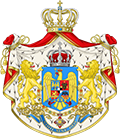Regional Challenges. A Romanian View, 31 martie
by HRH Prince Radu of Romania
Naval Postgraduate School, Monterey CA, USA
March 31, 2008
Ladies and Gentlemen,
Four years after becoming a NATO member, Romania will host, on April 2-4, 2008, the Summit of the North Atlantic Treaty Organization.
The Alliance passes through a vast process of transformation in order to be able to face the challenges of today’s security environment. Decisions are expected at the Bucharest Summit about enlargement, operations, security challenges in the XXI century and the partnerships of NATO.
Enlargement decision is expected to be taken in Bucharest. NATO operations remain in the core of the Alliance’s policies. Afghanistan policy will continue to be a very important subject in Bucharest, where decisions are expected on the further Alliance’s strategy in this country. NATO should be prepared to further contribute to the security in our region. Transformation process will continue in Bucharest, decision being expected in areas as the military transformation, Missile Defense, Cyber Defense or Energy Security.
The Bucharest Summit includes a high level meeting of the Euro-Atlantic Partnership Council (EAPC). The Euro-Atlantic Partnership needs an adaptation in order to better contribute to the current Euro-Atlantic security.
Romania supports upgrading of NATO’s policy with three countries admitted in the Partnership for Peace at the Riga Summit, namely Bosnia-Herzegovina, Montenegro and Serbia. We strongly support Georgia’s aspirations in the relation with the Alliance, and the offering of the Membership Action Plan to this country at the Bucharest Summit. The aspirations of Ukraine in the relation with the Alliance are supported as well by my country.
Romania fully understood, and acted accordingly, that membership of the Alliance means not only enjoying benefits but also sharing the burden. Our significant contribution to NATO operations, in Afghanistan and Kosovo, is an illustration of the responsibility assumed by Romania within the Alliance.
NATO’s membership remains the cornerstone of Romania’s security policy. Besides the guarantee provided by the article V of the Washington Treaty, the Alliance’s membership offers my country the possibility to promote its security interests and to express its views in the most important forum for the Euro-Atlantic defense and security.
Romania is neighbor of a region that still provides risks and challenges for Euro – Atlantic area – Balkans and the broader Black Sea region. It is natural that my country’s main security priorities are linked to its own and, at the same time, NATO’s neighborhood. A coherent allied policy regarding our region remains important for the overall Euro-Atlantic security and stability.
Romania’s key interest and contribution to the Alliance are related to the Balkans and Eastern Europe. Romania’s expertise related to the region represents an important asset for NATO’s policies. We believe that the wider Black Sea area is increasingly important for NATO’s policies, such as the energy security and the partnership relations. Therefore, we act, within the Alliance, as a promoter of an increased focus of the Alliance towards this region, the same approach being promoted by Romania within the EU as well.
In the military field, Romania has a long term commitment to NATO’s operations in Afghanistan (ISAF) and Kosovo (KFOR). My country is connected to the military transformation process of the Alliance: strengthening of the NATO Response Force, increase of the expeditionary character of the military forces and development of the strategic airlift capabilities, transformation of Special Forces. Based on the principles of the indivisibility of security and solidarity within the Alliance, we support the development of a NATO Missile Defense system, complementary and integrated with the American one.
The Bucharest Summit should reconfirm the solidity of the Alliance, its unity and its capacity to face the security challenges.
Enlargement and transformation of the Alliance would be in resonance with Romania’s geo-strategic position. We support the invitation of Albania, Croatia and Former Yugoslav Republic of Macedonia to join NATO. We support the upgrading of the Alliance’s relationship with Bosnia-Herzegovina, Montenegro and Serbia, countries that acceded to the Partnership for Peace at the Riga Summit. Romania supports offering a MAP for Georgia. Giving Georgia and Ukraine a strong incentive is essential for increasing their efforts to democracy and stability.
The Bucharest Summit should reaffirm the unity of purpose and action of NATO member states in Afghanistan. As an early contributor to NATO’s operation in Afghanistan, we hope the Alliance will agree on a comprehensive politico-military strategy in Afghanistan.
We hope the Bucharest Summit will decide on developing a NATO Missile Defense capability, complementary to and integrated with the one developed by the US. Romania affirmed itself as a strong supporter of developing an Alliance’s niche capability in the area of energy security.
The enlargement policy proved to be one of the most successful NATO policies. Enlargement contributed to capacity building process and had a positive impact on the Alliance’s transformation. The ten Central and Eastern Europe countries that joined the Alliance after the end of the Cold War brought a tremendous contribution to the accomplishment of NATO security objectives. We strongly encourage the authorities in Tirana, Zagreb and Skopje to speed up their preparation process, in order to secure a positive Summit’s decision.
The partnership policies represent an important dimension of NATO’s role nowadays. We are supportive for maintaining the partner countries in the region connected to NATO’s policies. We believe that EAPC still has a strategic importance for the Alliance. EAPC is a good instrument promoting democratic reforms. The Partnership for Peace program, under the EAPC framework, helped the partner countries from Eastern Europe and Central Asia to modernize their security and to increase cooperation among themselves and with NATO.
We value the contribution of the Mediterranean Dialogue (MD) countries to NATO operations and objectives. Cooperation between the MD countries and the Alliance depends essentially on the interest express by the MD partners. Romania is ready to explore ways to contribute, in a practical way, to the enhancement of NATO’s MD.
